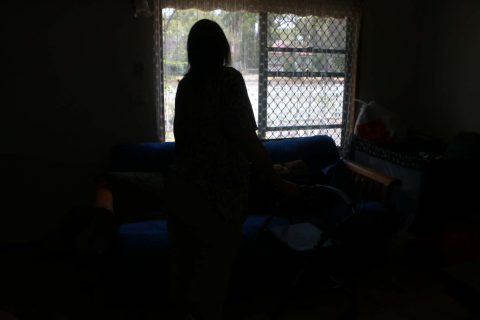
Joel Magarey
Disability service providers used unauthorised restraints, such as locking people in their homes and administering potentially harmful sedatives, on people in the NDIS more than 300,000 times in the previous financial year.
A report quietly released by the NDIS watchdog in late September, which for the first time provides a detailed picture of the use of restraint against people with disabilities across the country, showed 177,611 of the 302,690 unauthorised restrictive practices involved chemical restraint – the controversial use of sometimes-harmful psychotropic medication to sedate or control clients.
One disability advocate expressed her horror at the figures, while a high-level government expert labelled the situation “deeply disturbing and unacceptable”.
The findings prompted the NDIS Quality and Safeguards Commission to announce “compliance activity” targeting disability service providers in seven states and territories.
Melbourne University Foundation professorial fellow for disability and inclusion Keith McVilly said the unauthorised restraint figures were "disturbing" and likely an underestimate.
“We need to be very concerned about what we're going to discover going forward,” he said.
He said the use of restraints was known to cause physical injuries, deaths and mental trauma at levels “consistent with … post-traumatic stress disorder”, while research showed behavioural support alternatives could reduce the challenging behaviours restraints are used to control by 80 per cent.
On Friday, an interim report by the Royal Commission into Violence, Abuse, Neglect and Exploitation of People with Disability included physical, mechanical and chemical restraints in its definition of “violence and abuse”. It said the issue was an “emerging theme” it would examine, including whether restraints were a “disability-specific form of violence”
NDIS providers subjected clients to unauthorised “environmental restraint,” such as confining them in a locked house or restricting their access to objects or areas, 112,000 times. “Mechanical restraint,” such as using straps and restrictive clothing, was applied 10,472 times. Physical restraint was used 1605 times and seclusion, or solitary confinement, 423 times.
“The sheer volume of these [restraint use] reports highlights for the first time in Australia the nature of these practices and the scale,” NDIS Commission chief Graeme Head said in a statement accompanying the commission’s 2019-20 activity report.
“The volume of these practices is deeply disturbing and unacceptable.
“Providers must review their practices to reduce [the use of restraints].”
Unauthorised restraints are those imposed where agencies paid to support participants have not demonstrated they have state or territory authorisation to use them or lodged "behaviour support plans" demonstrating how they intend to meet NDIS Commission requirements on restraint use.
All state and federal governments have agreed to work towards eliminating the use of restraints, both authorised and unauthorised, on people with disabilities.
The NDIS Commission has intervened in troubling cases involving children and young people, including one provider subjecting “young children” to physical restraint and seclusion and another that was proposing to use mechanical, chemical, environmental and physical restraint on a nine-year-old.
The NDIS Quality and Safeguards Commission has been criticised for “simply not doing its job” after revealing it had issued only one fine and banned only one provider in the last two financial years despite thousands of complaints being lodged.
Mr Head admitted in the organisation's September report that its "highest priority for restrictive practices" – ensuring that ongoing use is authorised and occurs in accordance with behaviour support plans – was "not yet being achieved".
The report shows 4327 participants were subjected to unauthorised restraint in the previous financial year and the 6074 had official behaviour support plans containing the use of restraints. National Disability Insurance Agency figures show there are 391,999 NDIS participants across the country. WA is not included in the restraint figures as the NDIS Commission has not begun operating there.
People with Disability Australia director of policy and advocacy Romola Hollywood said the unauthorised restraint volumes were “horrifying” and cases involving children “absolutely shocking”.
“[Restrictive practices] can have all kinds of harmful effects … from causing significant pain and discomfort, depriving people of liberty and freedom of movement and altering people’s thoughts and thought processes.”
A spokesperson for peak provider industry body National Disability Services said that without acceptable and unavoidable reason, “people with disability should not be subject to unauthorised restraints”.
“It’s impossible to say what an acceptable number of unauthorised restraints should be, given there are circumstances where restrictive practices must be employed without a behaviour support plan in place, such as for the immediate protection of the person with disability or others.
“Unauthorised restraints are not necessarily illegal and the requirement to report every occasion until a behaviour support specialist is available to prepare an approved plan can translate into multiple reportable incidents across a day related to a single individual.”
from https://www.theage.com.au/national/ndis-participants-subjected-to-unaut…
